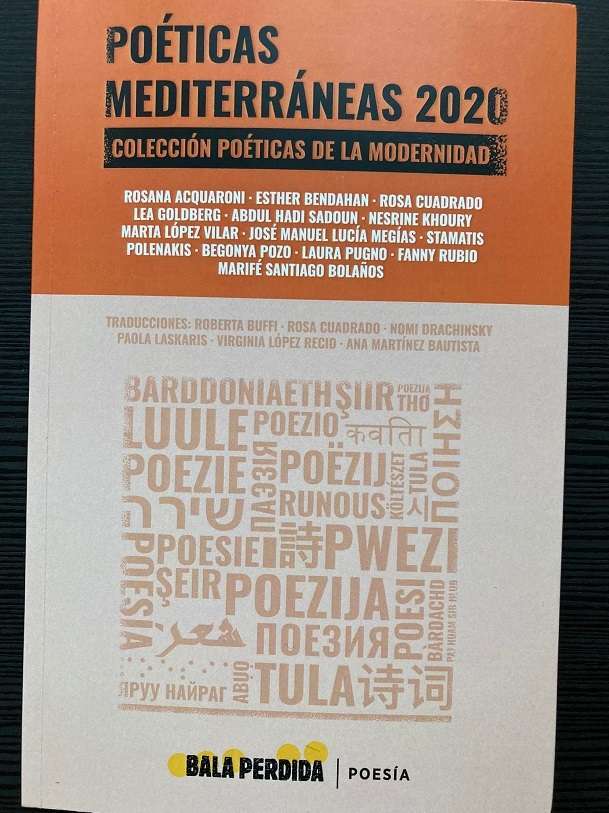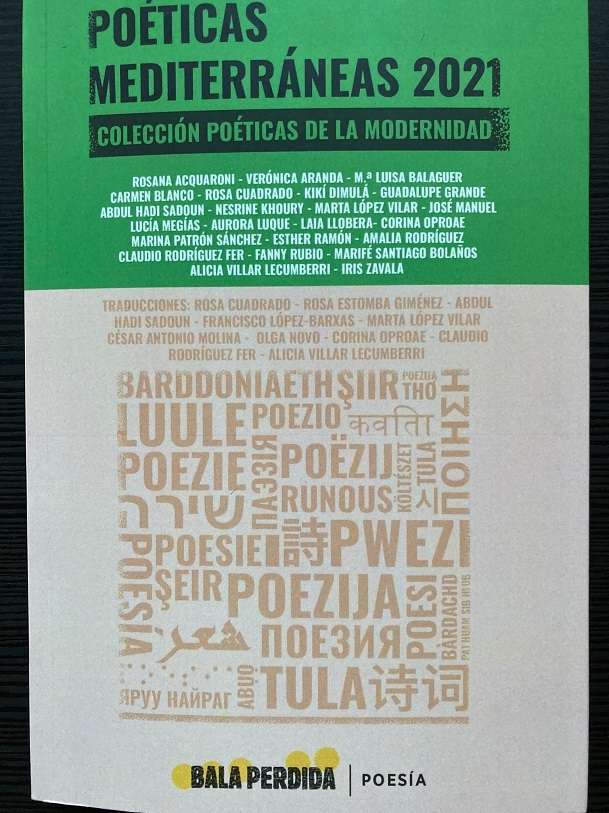Mediterranean poetics at Casa Árabe

This is a resounding refutation of those who, caught up in the vertigo of our times, advocate the end of poetry, or more specifically, the end of looking at the world through the beauty of a handful of verses. Poéticas Mediterráneas is the fruit of the Research Group of the Faculty of Philology at the Complutense University of Madrid, and of the commitment of a publishing house, Bala Perdida, capable of provoking the beating of excited hearts on encountering the beauty of the Arabic, Hebrew, Greek or Latin alphabet in Spanish.
Casa Árabe in Madrid hosted the joint presentation of the 2020 and 2021 editions, the former prevented by restrictions due to the pandemic. A session led by the Iraqi poet Abdul Hadi Sadoun, and where he himself, along with some of the poets included in the work, recited their own verses: Nesrine Khoury, Rosa Cuadrado, Marta López Villar... a small representation of the thirty or so writers who demonstrate that the Mediterranean is a nomadic concept, which mixes and enriches its pilgrimage with a solemn stop in Greece, from where another dream begins: that of Europe. Greece was with India, with Mesopotamia, with Israel, with Turkey, with North Africa, with those Pythagorean lands, with the embrace of Spain, touching Portugal with its watery fingers.

As the promoters of the Research Group state, the Mediterranean is a mantle woven of seas with different names that are the same sea, of unfathomable cultures that have traced paths capable of harbouring infinite labyrinths. It is the sea of the many civilisations that set out on the road to the east where, every day, the sun wakes up.
Marifé Santiago Bolaños, who wrote the introduction to the second volume, the one corresponding to 2021, states that "Mediterranean, we mean, is not a geography, but a mythography and a symbol. And its love". And she herself feels herself summoned by this poetic compilation to follow the path that guides us towards a common dwelling populated by the memory of the roads; to coexist with certain buried routes where the defeat of exile germinated... Bolaños says that there is a delirium in the story of pain, but there are also hugs that save. Those hugs, sometimes, are verses. And to say them aloud, to link what they bring and what they prelude, begins again the weaving in which Poetry strives from the time without measure of necessity and because.
Included in the 2021 volume are "three weavers of the soul that 2020 took to its night: Iris Zavala, Guadalupe Grande, Kikí Dímula".
"May no one die without loving the sea", the wish expressed by Zavala is also the homage that this book pays to her legacy.

Marifé Santiago Bolaños herself predicted that the "Poéticas Mediterráneas will end up as the best of memories of days of intellectual and aesthetic intensity, in a book". Here it is, because, as she herself describes it, a book is, in case we haven't learnt it yet, the unembraceable body with which Beauty, with a capital letter, loves us. And the Poétiques Méditerranéennes blows it into the ear of the world.
Either of the two volumes can be examined and read at the pleasure of the reader, who will find the emotions coming from the soul of authors such as Rosana Acquaroni, Esther Bendahan, Lea Goldberg, José Manuel Lucía Megías, Stamatis Polenakis, Begonya Pozo, Laura Pugno, Fanny Rubio, Verónica Aranda, María Luisa Balaguer, Aurora Luque, Laia Llobera, Corina Oproae, Marina Patrón Sánchez, Esther Ramón, Amalia Rodríguez, Claudio Rodriguez Fer or Alicia Villar Lecumberri.
Yes, Poetry is definitely more alive than ever, and we Mediterranean humans still need it to find the path of our own existence and the feeling that justifies it. And, in addition to the heartbeat that reading it provokes in our intimacy, it is no bad thing that these feelings are promoted through recitals such as the one held at Casa Árabe, which also had a luxury accompaniment: the lute player Hames Bitar, whose music is the palpable demonstration of the fusion between the many seas that are still the same Mediterranean.











